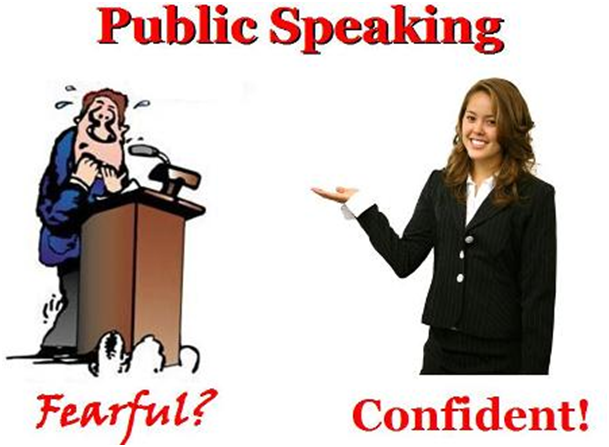How to make requests for special meals on a flight?
Are you travelling by an international flight for the first time? You must be flooded with a lot many questions. How will you reserve your preferred seat? How will you strike a conversation with the flight attendant?
For people with a good command over English language, it is not very difficult to handle any situation. However, what about the ones who are still learning English and are not very pro with the conversation flow?
Don't worry, at eAgeTutor, we provide you practice to sail through the toughest conversation easily. Let's go through the procedure of how you can request for special meals while on board.
Things you should know:
1. Flying companies provide passengers with special meals on request.
2. This service can be availed by people who have been advised a special dietary plan, because of any medical conditions or religious reasons.
3. You can communicate your requirements in advance while making reservations. It is best to intimate in advance so that you are served with your choice.
4. You can also request for a special meal while being on the flight, referring to the menu available.
5. Some of the usual options you can opt for are:
• Vegetarian
• Fat-free
• Kosher
• Low sodium
• Low fat
• Gluten-free
• Halal
• Carbohydrate free
• Peanut-free
• Lactose free
• Diabetic
Conversation example
To request for a special meal in-flight is easier than you think. With your spoken English vocabulary intact, you can very well carry out a warm conversation without any glitch.
Here is a spoken English conversation example for you to understand the proper usage of vocabulary and play of words.
Flight attendant: Welcome Ma'am, what would you like to have for lunch?
You: Thanks, Can I have a vegetarian Jain meal? I have intimated the same while booking my reservations.
Flight attendant: Yes, of course Ma'am. Special meals would be served in a while. Thank you for your patience!
You: Cool. Thanks for your assistance.
Flight attendant: Anything else Ma'am, Juice or Coke?
You: Yes, Can I have a diet coke... chilled.
Flight attendant: Yes, of course. It will be served with your meal.
You: Thanks again!
Points to Remember:
1. Depending on the airline you chose to fly, the scheme for special meals will vary. In addition, it is not 100% guaranteed that you would get the preferred meal. Therefore, you need to read the terms & conditions before booking, and notify your preference in advance.
2. Special meals are more often subject to availability and can be changed/ modified without any prior intimation. So be calm, and don't lose your patience while communicating with a flight attendant.
Conclusion

To get a grip over the language, try to speak in English at all occasions. At our English spoken classes, we give you enough exposure to carry out a fluent English conversation with confidence. You can also read English-speaking books to refine your knowledge of the language.
About eAgeTutor:
eAgeTutor.com is a premier online English learning institute. eAge's world class faculty and ace communication experts, from around the globe, help you to improve in an all-round manner. Assignments and tasks based well-researched content developed by subject matter and industry experts can certainly fetch the most desired results for improving spoken English skills. In this age of effective and advance communication technology, online spoken English programs are the most effective and convenient way to learn English.
For further information on our online English learning institute or to experience the wonders of the virtual classroom, fix a demonstration session with our tutor.
- By Monika Agarwal
Related Topics:
1. Conversation at the Airport Check-in
2. How to Talk About Food you Like/ Dislike?
3. How to Ask a Waiter for his Recommendations
How to use Punctuation Correctly? Part - II
In our first part we learned about the use of five punctuations, namely period, question mark, exclamation mark, Ellipsis, Semicolon (;) and colon (:). Let us now begin our free English learning session with other punctuations.
Hyphen vs. Dash
Don't we all get confused when it comes to the use of the hyphen and dash? A hyphen is used when you add a prefix to a word. The hyphen makes it easier to read the word. For instance, reexamine needs to be written as re-examine. As you can notice, the hyphen makes the word easy to read. It is important to refer a dictionary whenever you have doubts whether a hyphen needs to be added or not.
There are words like to restate, undo, etc. that do not require a hyphen. A hyphen means the words rely on each other. The hyphen is also used when you make compound words, like, up-to-date.
The dash is used to introduce some information to the subject not necessarily directly related to the topic under discussion. For instance, Ram - a mechanical engineer from D.E institute – presented an innovative idea in his latest presentation at the annual meeting. Now, this is clearly additional information without which the sentence would be complete, but the information definitely provides more idea on his educational background. When you are using a dash, there is a way you can ascertain whether the usage is right. Just read the line, omitting the dash part, if the sentence is still making sense then it is correct, but if it is disjointed then you may need to reframe the sentence.
Quotation marks (" ")
Whenever you are stating a direct quotation, as said by a person or taken from a piece of literature, you should use the double quotation mark.
For instance: According to a research, "60% of Indian population gets confused between the usage of double quotation and single quotation marks."
Single quotation
Also called as the apostrophe mark ('), it is used within a word to indicate possession and short form.
Ex: It's my pen over there.
There is a great lot of confusion between using an apostrophe and singular/plural noun.
It is my daughter's pen and it is her pen. We cannot say that it is her's pen.
There are a number of English learning exercises online where you can practice the use of apostrophe to improve your English language skills.
English grammar is an interesting topic to learn, but requires a lot of patience and practice. Nobody can learn it overnight. So, go step-by-step. Correct usage of punctuation is a fundamental to learning the English language. We shall continue with our free English learning lessons, in our next blog. We shall also take a lesson on the usage of commas (,). Stay tuned to our online class for English speaking.
Gear up! It’s Test Time
Hello people, it is our second test of the test series! 
We hope, you have been practicing English diligently. With the simple and tried-and-tested tips we provide, aren't you guys finding learning English a lot better?
How well did you guys score in our last test (http://english.eagetutor.com/english/1-spoken-english/569-english-exercises-for-beginners.html)? To brush up your skills and to give you an idea of where you stand as far as reading and spoken English is concerned, and how much more you need to work. However, one keeps learning English constantly, because that is the beauty of this language. There are new things to learn everyday!
Without much ado, let us start the test.
1. Isn't there anything better than this on TV?
I'm sorry, ______
A: there is anything better than this
B: they isn't
C: this is the better show.
D: there's nothing better.
2. Can you speak a foreign language?
A. Yes, I can speaks Chinese.
B. Yes, I can. I speak Chinese very well.
C. I can speak the Chinese.
3. Are Audi cars expensive?
A. Yes, are the most expensive cars in the world.
B. Yes, they are very more expensive.
C. Yes, they are very expensive
4. Will you get me some salt please?
A. No, thank you.
B. Sure, no problem. How much salt do you want?
C. Yes, I will. Here you are.
5. What happened to the cake?
A. The cake was eating by Suresh.
B. Was eaten by Suresh.
C. It was eaten by Suresh.
D. Suresh eating the cake.
6. Put these words in the correct order:
A. She
B. Was about to
C. Gave her a raise
D. Quit her job
E. When they
7. Identify the adjective in the following sentence:
Ships can reach Alaska in a relatively short time because of the extreme cold conditions.
8. Which of the following sentence is correct?
A. In the kitchen of Suresh, there is a stove, a sink and a refrigerator.
B. Is boiling water in a pot on the stove.
C. The clean dishes are on the shelves, inside the cupboard.
D. Behind the refrigerator, there is many dust.
9. Which of the following is not a polite sentence?
A. May I have some ketchup please?
B. I'd like a beer.
C. Can I get some salad?
D. Could I have a cup of coffee?
E. I want a hamburger.
10. Have you ______ been to Africa?
A. Ever
B. Still
C. Always
D. Much
E. Yet
So, get your pen and paper out and crack this simple test. All the best!

Learning English grammar and spoken English can become easy and convenient, provided you join the right English speaking class. With online classes for English speaking like eAgeTutor, learning English grammar can become quick and easy. Fluency in spoken English is a must, as it reflects your mastery of the language and exudes confidence, and with a proficient online English class like eAgeTutor, you can polish your English speaking skills and also learn new terms and phrases.
Dos and Don'ts of Public Speaking
 One important aspect to study while learning to improve spoken English is to understand the principles of public speaking. Most of us at some point of time in life have to speak in front of a crowd. Whether it is a presentation in your office or a project as part of your course curriculum, public speaking is a requisite. Good communication and a presence of mind help a lot in effectively delivering your message. But for people who have a doubt on their speaking skills, especially their language skills, for them nervousness is at another level. These people don't just have to overcome the stares of people but also their inner fear of English speaking.
One important aspect to study while learning to improve spoken English is to understand the principles of public speaking. Most of us at some point of time in life have to speak in front of a crowd. Whether it is a presentation in your office or a project as part of your course curriculum, public speaking is a requisite. Good communication and a presence of mind help a lot in effectively delivering your message. But for people who have a doubt on their speaking skills, especially their language skills, for them nervousness is at another level. These people don't just have to overcome the stares of people but also their inner fear of English speaking.
It is a fact that some people are natural at public speaking while some face a hard time doing it. However, it is something that we all can mend ways with. Public speaking is not confined to just your language skills, it entails your facial expressions, body language, the ease with which you communicate and a whole lot of other factors.
Let's look at the dos and don'ts that you should keep in mind before facing a group of people.
1. Basic– Dos
Be enthusiastic – Show your enthusiasm and energy.
Face the audience – Manage your presentation such that you face the audience at all times. Don't show them your back.
Speak clearly – Be loud enough that the audience gets your message even the back benchers.
2. Basic – Don'ts
Don't show your nervousness – Don't fidget with things in your hands. Make only purposeful movement and gestures.
Don't play with your slides – Either move on to next slide or stick to one you are explaining, avoid confusion with your audio-visual aid.
Don't do awkward gestures – It's a strict no-no to put your hands in the pocket. Don't have awkward hand or facial gestures that create diversion.
3. English – Dos
Define your words – Do define any word or phrase that you think the audience is not familiar with. It is important to remember that not all sitting in a group belong to the same background as you.
Be Precise and simple – Be as precise and simple when it comes to talking. Don't use complex words like "panache"; instead you can use "style or flair". Keep it as simple, and precise as possible.
4. English – Don'ts
Don't start with affirmative words – This is the first lesson in how to improve communication skills. Always start with a positive word. A lethargic start to a sentence, for instance - So, we all are gathered here to discuss on IELTS preparation, sounds dull.
Don't introduce a topic with a start like 'briefly' – When you start your topic with something like "Briefly"; it implies that the intro is redundant but still forced on the listeners. It is better to avoid such an apologetic start.
Conclusion
When you are learning to speak English, a public speaking experience would add to your learning. Speaking English fluently is one the main concerns that makes us nervous before a presentation. However, if you are well-acquainted with your topic and have structured it well, the language barrier would not be a stumbling block. Organize your presentation, giving yourself enough space to speak slowly and clearly. Don't rush with your talk and gasp for words. Practice and practice more to get your speech right. All the best!




